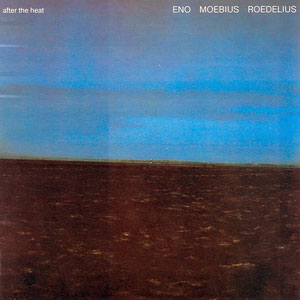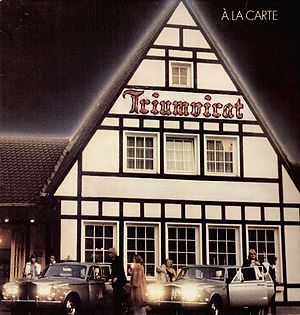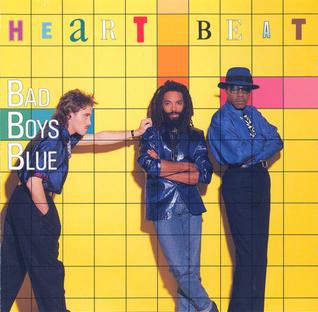The Gramophone Classical Music Awards, launched in 1977, are one of the most significant honours bestowed on recordings in the classical record industry. They are often viewed as equivalent to or surpassing the American Grammy award, and referred to as the Oscars for classical music. They are widely regarded as the most influential and prestigious classical music awards in the world. According to Matthew Owen, national sales manager for Harmonia Mundi USA, "ultimately it is the classical award, especially worldwide."

Spartacus is the third album by the German group Triumvirat. It is a concept album based on Spartacus, the Thracian gladiator who led the 3rd slave uprising in 73–71 BC. The lyrics were written by Hans Bathelt, with contributions by Jürgen Fritz. It was originally released in 1975 on the EMI label, and later distributed in the U.S. by Capitol. It debuted at number 27 on the Billboard album charts.
Triumvirat was a West German progressive rock band from Cologne in then-West Germany. They became, during the 1970s, a key figure in Eurock, the progressive rock of continental Europe whose German variant is called krautrock. The name Triumvirat comes from the Latin word triumvirate, which refers to a group of three powerful individuals.

After the Heat is a 1978 album by Brian Eno, Dieter Moebius and Hans-Joachim Roedelius, credited to "Eno Moebius Roedelius". The album represents the second collaboration by the trio, the first being 1977's Cluster & Eno. As with the previous album, After the Heat was created in collaboration with the influential krautrock producer Conny Plank.
Ivan the Terrible, Op. 116, is the score composed by Sergei Prokofiev for Sergei Eisenstein's film Ivan the Terrible (1942–45) and its sequel (1946), the first two parts of an incomplete trilogy. The project was Prokofiev's second collaboration with Eisenstein, the first being the popular Aleksandr Nevskiy (1938). The majority of the non-liturgical song texts were written by Vladimir Lugovskoy, who collaborated with Prokofiev on the texts for Aleksandr Nevskiy.
Boris Ivanovich Tishchenko was a Russian and Soviet composer and pianist.

Illusions on a Double Dimple is the second album by the German progrock group Triumvirat. It was a breakthrough for the band, which started to open shows in a U.S. tour for Fleetwood Mac. Triumvirat played the album in its entirety, and the tour resulted in increased popularity for the band in a number of countries. Triumvirat's popularity increased with their next release, Spartacus.

Old Loves Die Hard is the fourth album by German progressive rock group Triumvirat. It was their first recording as a four-piece band with British singer Barry Palmer. It was also their last album with original bassist Dick W. Frangenberg and original drummer/lyricist Hans Bathelt.

Pompeii is the fifth album by German progressive rock group Triumvirat. The band released the album under the name of "The New Triumvirat" due to temporary legal squabbles over the original name from former members, drummer Hans Bathelt and bassist Werner Frangenberg. They were replaced by drummer Curt Cress and bassist Dieter Petereit, both from the band Passport. This would be the band's last progressive album, due to the pressure of the record company to do more commercial music, to enhance the record sales.

"Run to Me" is a song by the Bee Gees, the lead single and first track on the group's album To Whom It May Concern (1972). The song reached the UK Top 10 and the US Top 20.

A la Carte is the sixth full-length studio album by German progressive rock band Triumvirat, released in 1978.

Ulla Wiesner is a German singer.
Jürgen Fritz is a German musician. He was the keyboard player in progressive rock band Triumvirat. He also composed the film score to the 1989 science fiction film Hard to Be a God and also published a solo album in 1990, Millennium. In 1986-1988 he collaborated with German disco group Bad Boys Blue as arranger and keyboardist.
Helmut Köllen was a German bass and guitar player as well as a singer for the band Triumvirat.
Hans Bathelt is a German drummer, percussionist and lyricist who played with the German progressive rock band Triumvirat between 1970 and 1976. He left because of musical differences between him and the keyboardist Hans Jürgen Fritz, the record company wanted some more commercial music, Fritz gave them what they wanted so the drummer left

Tommy is a soundtrack album by The Who with contributions from numerous artists. The soundtrack was used in the 1975 Tommy film that was based on the original album that was released by The Who in 1969. Pete Townshend oversaw the production of this double-LP recording that returned the music to its rock roots, and on which the unrecorded orchestral arrangements he had envisaged for the original Tommy LP were realised by the extensive use of synthesiser.

October Road is the fifteenth studio album by singer-songwriter James Taylor released in 2002. The album would be Taylor's last album of original material until Before This World in 2015. It was nominated for the Grammy Award for Best Male Pop Performance at the 45th Grammy Awards in 2003. The album debuted at number four on the Billboard 200 with 154,000 copies sold in its opening week, which is Taylor's best performing album in the SoundScan era. The album was certified Platinum by the RIAA on November 21, 2002, and had sold 1,076,000 copies in the US as of May 2015.
"Jamaica Say You Will" is a song written and performed by American singer-songwriter Jackson Browne. It is the first song on his 1972 self-titled debut album.

Heart Beat is the second studio album by German band Bad Boys Blue released on 19 October 1986 by Coconut Records. The album includes two international hits: "I Wanna Hear Your Heartbeat " and "Kisses and Tears ". Three singles were released from the record. Sometimes the name of the album is spelled as Heartbeat.











